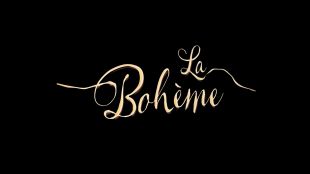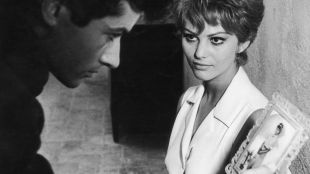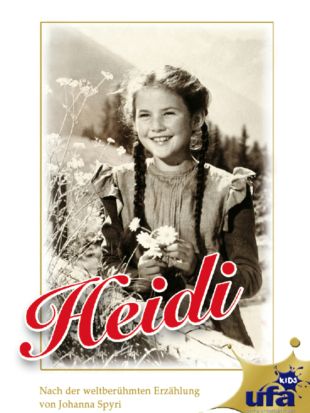Postwar Italian helmer Luigi Comencini is one of a number of European directors whose career can be described, most intuitively, as bittersweet. Like Alberto Lattuada (one of his close friends through their ninth decades), Comencini achieved considerable acclaim in his native Italy, but never saw that infamy cross the ocean -- thriving, as he did, in the shadow of an earlier generation deemed to have broader transatlantic appeal: one comprised of Vittorio De Sica, Roberto Rossellini, and other international giants. Comencini's stature was further diminished by his critical perception as something of an odd duck -- he could not, and cannot, be classified as a neorealist by any stretch of the imagination. Like Lattuada, the director often turned out comedies, placing him at odds with the gravity of neorealism, and the inconsistent commercial reception of his films (repetitive alternation between flops and hits) did not help. Yet, in retrospect, Comencini's finest work ironically gains a universal resonance on par with that of his better-known predecessors, thanks to one marked gift: his oft-praised ability to capture onscreen the behavioral and emotional nuances of children. Born on June 8, 1916, in the Italian town of Salo, on Lake Garda, Comencini studied architecture in Milan and gained infamy for his staunch opposition to fascism; during his education, he acquired and honed a keen interest in the cinematic arts. After graduation, he accepted a job at a newspaper as a film critic, then helmed a 1946 film very much in the neorealist vein: the documentary Bambini in Città, about Milanese street children. The craftsmanship of this work caught the attention of the Lux studios in Rome (the Cinecittà of the day), who hired Comencini to co-author the script for Mario Soldati's 1947 Daniele Cortis and to direct the feature Proibito Rubare, pitched by the studio as an Italianized Boys' Town. Unfortunately, the picture flopped, forcing Comencini to become a director-for-hire, and he signed on to helm the über-commercial Italian comedy L'Imperatore di Capri, starring the diminutive screen comic Totò, in 1949.
For better or worse, Comencini did not break through to the public until his classic romantic comedy Bread, Love and Dreams (aka Pane, Amore e Fantasia, 1953), an erotic, droll roundelay with Vittorio de Sica as a carabinier, and Gina Lollobrigida (in one of her first screen roles) as the feisty young woman who can never quite return his affections. The picture became a massive hit (one of the most formidable of Comencini's career), spawned global celebrity for Lollobrigida, and led to an equally popular sequel, Bread, Love and Jealousy (aka Pane, Amore e Gelosia), the following year.
Comencini's ensuing sequence of films waxed inconsistent, with the director (again) turning out occasional hits and occasional disappointments; most, regardless of the reception at hand, were comedies. During the 1960s, however, the director broke from his comic predilection and surprised everyone with two extraordinary dramas: Tutti a Casa (Everybody Go Home!, 1960), with Alberto Sordi as a WWII-era soldier forced to choose between collaboration and resistance, and Infanzia, Vocazione e Prime Esperienze di Giacomo Casanova, Veneziano, (1969), a vivid and finely-nuanced portrait of childhood life. The triumph of the latter project yielded two more on the same subject, both commissioned by RAI: the documentary series Bambini e Noi (aka Children and Us, 1970) and a massive, startlingly ambitious, four-and-a-half-hour miniseries adaptation of Carlo Collodi's Pinnochio, also done for Italian television. Although significant interference at the editing table purportedly damaged that project, Comencini later described its production as one of the most joyous experiences of his life.
Comencini achieved two minor (continental) hits in the late '70s and early '80s: the romantic post-noir drama La Donna Della Domenica (aka The Sunday Woman, 1976), with Marcello Mastroianni as a police chief emotionally intertwined with society woman Jacqueline Bisset, and the gentle coming-of-ager Voltati Eugenio (1980), which filters a messy divorce through a 14-year-old's perspective. However, Eugenio represented the last of Comencini's high points; he continued to turn out features and miniseries through the '80s and '90s, but most are now regarded as somewhat dull. After Marcellino (1991), a disappointing remake of a Spanish classic, Comencini abandoned the director's chair. In April 2007, after 16 years of retirement, he died in Rome at age 90 of natural causes. Comencini also fathered a veritable European directing dynasty -- his daughters Cristina and Francesca are both world-renowned filmmakers in their own right, with a vast array of awards between them.


